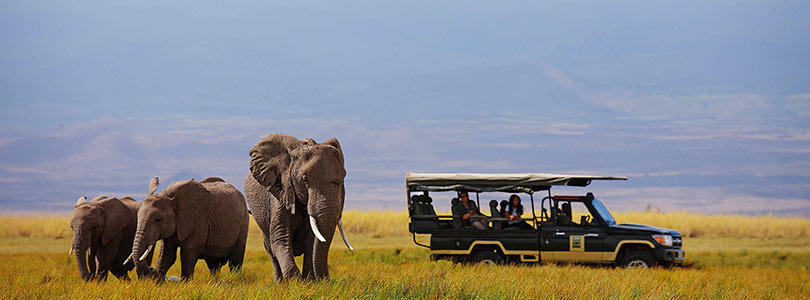Recommended Ideas To Selecting Kenya Holiday Packages
Recommended Ideas To Selecting Kenya Holiday Packages
Blog Article
What Are The Security And Safety Aspects I Need To Be Aware Of When Visiting Mombasa In Kenya?
It is important to be aware of the safety and security issues while visiting Mombasa in Kenya. This will help ensure a trouble-free and enjoyable excursion. Here are a few key things to be aware of.
1. General Security
Stay up-to-date with local news and any travel warnings issued by your home country.
Register with your embassy: If you are required to register, do so at your embassy in Kenya so they can provide assistance in an emergency.
2. Health Precautions
Immunizations: Make sure you're up-to-date on routine vaccinations and think about additional vaccines like Hepatitis A, Hepatitis B, Typhoid and Yellow Fever.
Mombasa's malaria has become endemic. Make sure you take antimalarial medicine, apply insect repellent, sleep in mosquito nets and wear long-sleeved clothing at night.
Food and water safety Avoid eating ice and drink boiling or bottled water. Eat well-cooked foods. Be aware when you eat street food.
3. Personal Security
Avoid walking on your own at night: Stay in well-lit, populated areas. Avoid walking on beaches or in areas that are secluded after it gets dark.
Protect your valuables. Make use of hotel safety deposit boxes for valuables, including passports and cash. Avoid displaying costly items like electronics or jewelry.
Select a reliable transportation service: Choose certified taxis, ride hailing service or transportation provided by your Hotel. Avoid unmarked taxis.
4. Local Laws and Customs
Dress modestly. This is crucial when you visit religious sites. Be mindful of the local traditions.
Kenya has strict laws on drugs and harsh penalties. Beware of any involvement in illegal drugs.
Request permission prior to taking photos of people living in rural areas and military buildings or government offices.
5. Beach Safety and Water Safety
Swim Safely. Take note of local recommendations. Use designated swimming areas.
Beware of marine wildlife, like Sea Urchins and jellyfish. If you walk along the beach, be sure to wear appropriate footwear.
6. Crime Prevention
Petty Crimes. The possibility of bag snatching or pickingpocketing can happen, especially in areas that have a large number of people. Make sure your possessions are in a secure location and remain vigilant.
Scams: Beware of strangers offering assistance that seems generous or that seem too tempting to be real. Make sure to use licensed tour operators.
Emergency Contacts: Know the emergency numbers for your local area including Police (999) and Fire (999) as well as Ambulance (999). Keep the contact information of the consulate or embassy in your pocket.
7. Natural Hazards
Weather: The climate in Mombasa is tropical, and could result in floods or heavy rains, particularly in the rainy season (April-June) and October-November. Be aware of the weather forecasts.
Sun Protection Apply sunscreen and wear a hat in order to avoid sunburn.
8. Travel Insurance
Comprehensive Coverage: Ensure that you are covered by travel insurance that will cover medical emergencies, theft, loss and travel interruptions. Make sure that your insurance policy covers water sports and other activities that you intend to take part in.
If you keep these safety and security considerations in mind, you'll be able to more comfortably enjoy your time in Mombasa with peace of mind. Check out the most popular mombasa old town for more tips including tour and travel company, tour agents in kenya, african safari kenya, kenya holiday packages, kenya safari and beach, tour and travels, mombasa travel agency, africa safaris and tours, beach in mombasa, tours and travel company in kenya and more.
What Cultural Sensitivity Issues Must I Know When I Am Traveling To Mombasa, Kenya?
It is essential to respect local culture when traveling to Mombasa. This will make you to have a better experience. Here are some important considerations to consider:
1. Dress according to local code of dress
Mombasa is home to a substantial Muslim population. Dress modestly when you are in public areas, at religious sites or your local neighborhood. This means that you need to be sure to cover your chest, shoulders as well as your knees and legs.
Beachwear. Wearing swimwear is acceptable on the beach, but it should be covered if you visit nearby shops or restaurants.
2. Religious Sensitivity
Visiting Mosques. You must ask permission to enter a mosque prior to and then dress modestly. Women must cover their hair and take off their shoes.
Prayer Times: It is important to be aware of the five daily prayer periods and show respect during them, especially when they are near the mosque.
3. Photography Etiquette
Permission: Always request permission before taking photos of people, especially in rural areas or traditional locations. Some people will feel uncomfortable and think they are being ostracized.
Do not take pictures at sensitive sites such as military bases, government buildings, and cultural sites that may restrict photography.
4. Social Interactions
It is crucial to greet people politely. Swahili has a greeting called "Jambo" or "Hello". Handshakes are common however, it's better for Muslim women to wait until their hand is extended, or simply greet them verbally.
Personal Space - Protect your privacy and not make physical contact with anyone, especially if you are in a conservative setting.
5. Cultural Standards Taboos
Public Displays: It is generally considered inappropriate to display affection in public.
Left Hand Use: Traditionally, the hand that is left handed is regarded as dirty. You should use your left hand to eat or greet others, as well as to trade goods or money.
Feet - It's considered to be disrespectful to point your feet in their direction or show them.
6. Language and Communication
Basic Swahili. Understanding a few Swahili basic phrases can go a long way towards building rapport with locals, and also showing respect. Common phrases include "Asante", "Habari" and "Thank you". ).
Politeness: Be patient and politeness in your communication. Kenyans are looking for respectful and courteous interaction.
7. Respect for local Customs
Traditional practices: Be respectful of the customs and rituals of the past. If you're invited to an event in your region, follow your hosts' behavior and pay attention to their manner of conduct.
Bargaining in local shops and markets is a common practice. But do it with humour and respect. It's more cultural than confrontational.
8. Alcohol and Smoking
There is plenty of alcohol available and should be consumed in a discrete manner. This is especially true in areas that have a large Muslim population. Avoid public drunkenness.
Smoking in public places is not allowed. Smoking zones are often marked.
9. Environmental Respect
Beware of littering and dispose of waste properly. Take care to respect wildlife and natural areas.
Conservation: Contribute to conservation efforts by respecting local wildlife and their habitats. Avoid buying products made of endangered species.
10. Assisting Local Communities
Local Businesses: Support the market in your area, artisans from the local area as well as local businesses, to support the local economy.
Responsible Tourism: Participate in responsible tourism and select sustainable and environmentally friendly tourism alternatives that benefit local populations.
These guidelines for cultural sensitivity will allow you to enjoy a a meaningful and respectful trip in Mombasa. They also help you to appreciate and gain a deeper understanding of the local culture. Take a look at the top rated Airport transfer to Mombasa for site info including kenya mombasa holiday packages, kenya safaris, african safari excursions, kenya safari holiday, tours and safaris, luxurious african safari, africa tours and safaris, kenya safari and beach, mombasa beach kenya, africa tours and more.
What Financial Planning Considerations Should I Be Aware Of Prior To My Trip To Mombasa Kenya?
If you plan to visit Mombasa, Kenya, careful budgeting and planning will make sure that you have a comfortable and enjoyable trip. Be aware of these factors that affect your finances:
1. Budgeting
Accommodation: Do your research and book your accommodation in advance. Prices can vary widely depending on the type and location of accommodation.
Include the cost of flights as well as local transportation (tuk-tuks and matatus), car rental, and any excursions.
Spend a budget for dining and food that includes dining out and snacking. Prices can vary from inexpensive local eateries to high end restaurant prices.
Fees for admission to attractions, guided tours and activities like safaris, water sports or tours of the culture.
2. Currency and Exchange Rates
Local Currency: The currency in Kenya is the Kenyan Shilling (KES). Know the rates of exchange.
Currency Exchange Make sure you exchange your currency at reputable exchange bureaus or banks. Avoid exchanging money in the streets.
ATMs can be found in Mombasa. Check that your card is suitable for international withdrawals.
3. Payment Methods
Cash is a great option for small transactions, tipping and other places where cards are not accepted.
Credit and debit cards Credit and debit cards of all types are accepted in hotels, restaurants, as well as larger retail stores. Inform your bank about any travel plans in order to avoid having your credit card blocked.
Mobile Payments M-Pesa, a mobile payment system that is widely utilized in Kenya. It is useful for transactions when you're planning to use a local SIM card.
4. How to Save Money
Take advantage of the shoulder or low seasons (April to June and October to December) to save money on lodging and flights.
Book well in advance to ensure better prices on flights.
Local restaurants. For a more authentic experience, try eating in local eateries or food stands.
5. Tipping
Tipping has now become a Kenyan tradition. In restaurants, it is normal to leave 10% if there's no service provided. Hotel staff can be rewarded with tips guides, drivers, and staff at your discretion.
It is possible to tip small amounts of local currency. Tipp porters between KES 50-100 per bag. Housekeepers should be rewarded with a tip of 100 kES per day.
6. Emergency Funds
Reserve funds: Keep an emergency fund of cash in your wallet and ensure you have access to additional cash with a credit card or debit card.
Travel Insurance: Purchase comprehensive travel insurance, which covers medical emergencies as well in trip cancellations. Also, it protects you against theft and loss.
7. Security
Hotel safes can be a good place to keep valuables like passports as well as extra cash. Take care when using ATMs during the night, and especially in the evening.
Avoid carrying large amounts of cash: Do you carry large sums of cash? Separate your cash and credit cards between your wallet and an area that is secure.
8. Local Transactions
Bargaining is a common practice at local markets. Be respectful of the seller and witty. Aim to get a fair price.
Receipts and Records Record receipts for significant purchases and transactions. They can be extremely helpful in budget tracking, and in the event of disagreements.
9. Understanding Fees
ATM and Bank Fees Contact your bank for fees for international withdrawals. Some ATMs charge an extra fee if you are using a foreign credit card.
Currency Conversion Fees. Pay attention to any conversion fees charged by your bank if are using a credit or debit card in another country.
These financial planning ideas will help you manage your money while enjoying a relaxing holiday in Mombasa. Have a look at the best kenya day tours for website recommendations including kenya beach mombasa, kenya tourism, kenya mombasa holiday packages, african safari tours kenya, facts about kenya, safari excursions, trips to kenya africa, tour and travel company, kenya safaris and tours, kenya tours and more.